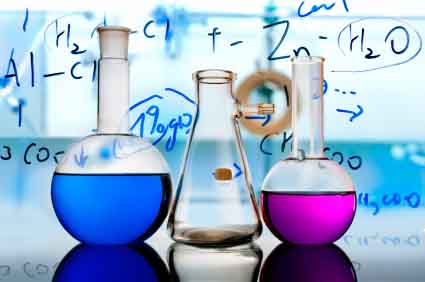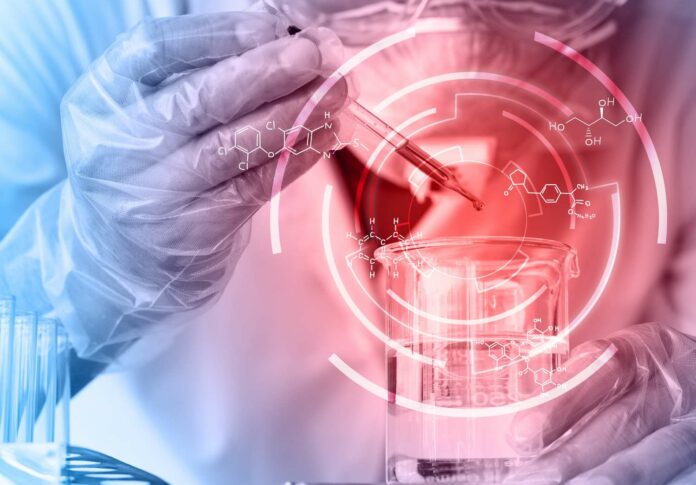Introduction
Welcome to the fascinating world of analytical chemistry! In this comprehensive guide, we will delve into the intricate field of analytical chemistry, its significance, applications, and methodologies. Whether you are a student, researcher, or simply curious about the mysteries of matter, this article will serve as your gateway to understanding the fundamental principles and techniques employed in this scientific discipline. So, let’s embark on this enlightening journey and explore the vast domain of analytical chemistry.

Analytical Chemistry: Unraveling the Complexities
Analytical chemistry is the branch of science dedicated to identifying, quantifying, and characterizing substances and compounds. It involves the study of matter, its composition, and the methods used to separate and analyze its components. By employing various techniques, analytical chemists gain insights into the chemical and physical properties of substances, enabling them to solve complex problems, advance scientific knowledge, and contribute to numerous fields, including medicine, environmental science, forensic analysis, and pharmaceuticals.
Analytical chemists play a crucial role in enhancing our understanding of the world around us by investigating the composition and behavior of matter at the molecular level. Their work forms the foundation for quality control, process optimization, and the development of new materials and technologies. Through meticulous experimentation and data analysis, analytical chemists provide valuable insights that aid in decision-making, policy development, and problem-solving across a wide range of industries.
Key Techniques in Analytical Chemistry
Analytical chemistry encompasses a vast array of techniques that enable scientists to examine and analyze various substances. Let’s explore some of the key methodologies employed in this field:
1. Chromatography: Separation for Accurate Analysis
Chromatography is a powerful technique used to separate mixtures into individual components. It relies on the differential distribution of substances between a stationary phase and a mobile phase. Common types of chromatography include gas chromatography (GC), liquid chromatography (LC), and high-performance liquid chromatography (HPLC). These methods are widely utilized in pharmaceutical analysis, environmental monitoring, and forensic investigations.
2. Spectroscopy: Shedding Light on Molecular Structures
Spectroscopy involves the study of interactions between matter and electromagnetic radiation. By analyzing the absorption, emission, or scattering of light, analytical chemists can determine the structural and compositional properties of substances. Techniques such as infrared spectroscopy (IR), ultraviolet-visible spectroscopy (UV-Vis), and nuclear magnetic resonance (NMR) spectroscopy provide valuable insights into the molecular structure, functional groups, and chemical bonding of compounds.
3. Mass Spectrometry: Identifying Compounds with Precision
Mass spectrometry (MS) is a technique used to determine the molecular weight and elemental composition of compounds. It involves ionizing a sample, separating the resulting ions based on their mass-to-charge ratio, and detecting and quantifying them. With its exceptional sensitivity and specificity, mass spectrometry finds applications in drug discovery, proteomics, environmental analysis, and forensic science.
4. Electrochemistry: Probing Electron Transfer Reactions
Electrochemistry explores the relationship between chemical reactions and electrical energy. By measuring the flow of electrons during oxidation-reduction reactions, analytical chemists can assess the properties of substances and investigate their behavior in solution. Techniques such as cyclic voltammetry, potentiometry, and coulometry are invaluable in studying corrosion, electroplating, and energy storage systems.
Frequently Asked Questions (FAQs)
Q1: What is the role of analytical chemistry in environmental science?
Analytical chemistry plays a vital role in environmental science by monitoring and assessing pollutants in air, water, soil, and biological samples. It helps in identifying sources of contamination, evaluating the effectiveness of remediation strategies, and determining compliance with environmental regulations.
Q2: How is analytical chemistry utilized in the pharmaceutical industry?
Analytical chemistry is crucial in the pharmaceutical industry for drug development, quality control, and ensuring product safety. It enables the identification and quantification of active pharmaceutical ingredients, characterization of impurities, and assessment of drug stability.
Q3: What are some emerging trends in analytical chemistry?
Some emerging trends in analytical chemistry include the development of miniaturized and portable analytical devices, the integration of different techniques for comprehensive analysis, and the utilization of artificial intelligence and machine learning algorithms for data analysis and interpretation.
Q4: Can you provide an example of an analytical chemistry application in forensic science?
Certainly! Analytical chemistry is extensively used in forensic science to analyze trace evidence such as fibers, glass fragments, and DNA. By employing techniques like gas chromatography-mass spectrometry (GC-MS) and DNA profiling, forensic analysts can provide crucial evidence in criminal investigations.
Q5: How does analytical chemistry contribute to the field of medicine?
Analytical chemistry plays a pivotal role in medicine by enabling the quantification of drugs and metabolites in biological samples, ensuring patient safety through toxicological analysis, and developing novel diagnostic tools and techniques. It aids in disease diagnosis, monitoring drug therapies, and advancing personalized medicine.
Q6: What are the career prospects in analytical chemistry?
Analytical chemistry offers diverse career opportunities in academia, research institutions, pharmaceutical companies, environmental monitoring agencies, forensic laboratories, and quality control departments. Skilled analytical chemists are in high demand due to their expertise in data analysis, instrumentation, and problem-solving.
Conclusion
Analytical chemistry serves as a cornerstone in unraveling the mysteries of matter. By employing a wide range of techniques, analytical chemists gain invaluable insights into the composition, behavior, and properties of substances. Their contributions extend across various fields, impacting our understanding of the environment, improving healthcare, and driving technological advancements. So, whether you are an aspiring scientist or simply intrigued by the wonders of chemistry, let the fascinating world of analytical chemistry captivate your curiosity and ignite your passion for exploration.
============================================


